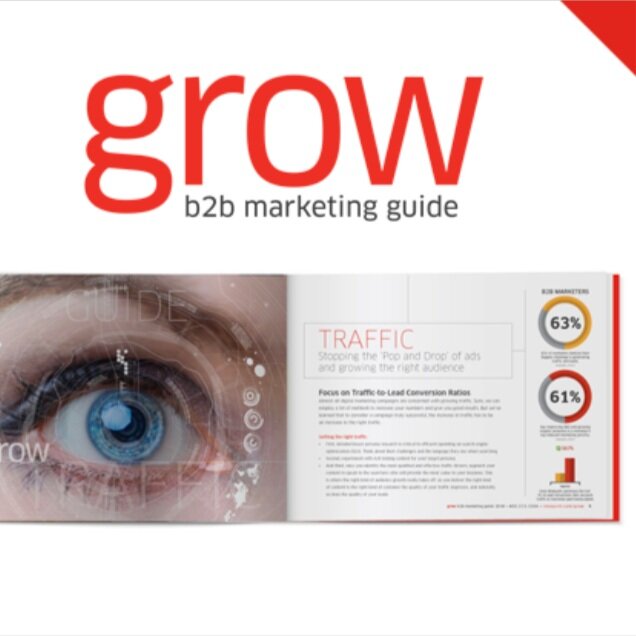In professional team sports, it’s hard being the head coach. When things are going well, the team gets most of the credit with perhaps a handful of fans and commentators recognizing the manager for inspiring good performances. When the results are not so great, the coach is the first one on the proverbial hot seat whether or not the true causes are factors they can control.
Often when a head coach is fired, the organization labels the move a change in philosophy. Sometimes that’s a hollow justification meant to appease disgruntled fans, and other times it’s a rationale with merit. That’s a similar situation to what B2B companies may face when deciding whether to continue a partnership with their marketing agency or move on.

The deeper level, and one that is a more common milestone for growing B2B companies, is finding an agency with a wider breadth of inbound services.
Switching inbound marketing agencies requires good cause, because the process of onboarding a new group, developing a rapport and shared vision, and working out goals and benchmarks for the future is involved. Changing agencies means you’re going to spend time building a new partnership, time which likely could be better spent on refining existing lead generation strategy.
Because of both the time and money that is spent on making such an adjustment, the right signs need to be there to justify the change. Here are three reasons that switching inbound marketing agencies could make sense for your B2B marketing operations.
1. You’ve outgrown the scope of their offerings
The best problem to have, in a manner of speaking, is that you’ve outgrown the agency you’re with. It’s not that your shared strategy has been lacking quality or that the partnership heretofore has been a poor fit—instead, your future is bright and your company needs something more to capitalize on that potential.
 What does this mean in practical language? On one level, it may just be a matter of quantity of output. You’re ready to step up your B2B inbound game and thus need more content than before (perhaps increasing your posting schedule from twice a week to five days a week) and a greater variety of it (adding videos, guest posts and maybe even a podcast). This could also manifest as needing more of a presence on social media or industry leader websites.
What does this mean in practical language? On one level, it may just be a matter of quantity of output. You’re ready to step up your B2B inbound game and thus need more content than before (perhaps increasing your posting schedule from twice a week to five days a week) and a greater variety of it (adding videos, guest posts and maybe even a podcast). This could also manifest as needing more of a presence on social media or industry leader websites.
The deeper level, and one that is a more common milestone for growing B2B companies, is finding an agency with a wider breadth of inbound services. Though content is very much the keystone of inbound marketing, there are many other elements under the inbound umbrella, such as programming your websites, maintaining SEO relevance, using traditional PR efforts that fit the inbound mindset and creating or supporting software to enable your internal marketing and sales employees.
If your company has an eye on greater things in the near future, it can be extremely beneficial to seek out a single marketing partner that is capable of handling all these facets and packaging them together in one cohesive strategy.
2. You recognize deficiencies or missed opportunities
However, it’s equally possible for the motivation to change agencies to come from being underwhelmed by results. It’s tough to diagnose this generally for all B2B companies as the specific reasons can vary so much, but the key indicator is always a consistent disconnect between what you’re asking from your agency and what they’re providing.
What’s most important is to recognize the difference between understandable mistakes and routine underperformance. Communication issues can be prevalent at the outset of a partnership as the agency gets a feel for your needs, goals and voice. But if they persist, it can be a serious red flag. You need a marketing agency to write, speak, and act in your voice, and if there are recurring difficulties in correspondence, strategic planning, and meeting deadlines, then they may not be well-equipped to create content on your behalf.

You need a marketing agency to write,
speak, and act in your voice.
Beyond communication, look at the results. First and foremost, is the agency analyzing your inbound campaigns and giving you real, actionable insights? New efforts may not pay off right away, but a warning sign is an agency that doesn’t offer ways to improve in lieu of hitting target numbers. Furthermore, are they providing regular assessments of their own performance, particularly by providing hard data about attribution and conversion rates? Unsuccessful campaigns are unfortunate, but they become a real problem when an agency can’t provide answers as to why they failed.
3. It’s just not a good fit
Then, there’s the ineffable feeling of “something just isn’t clicking.” Sometimes the problem with an agency can be that they’re a bit too hands-on. Marketing firms should change the way a B2B company markets itself but not need to fundamentally affect the corporate DNA to do so. This is a bit tricky because the inbound brand is a big part of modern marketing—only your company will know what is too drastic of a move from your core values.
A bad fit may not just come from an agency trying to change your corporate identity. Maybe there are recurring clashes over what to prioritize in campaigns or content. Perhaps there’s a problem opposite of sign No. 1 in this article and they are focused on scaling up marketing too extravagantly without justification through performance.
In the end, a good partnership with an external marketing group relies on chemistry. A good rapport can be built over time (and will normally improve as your partnership prolongs and syncs up with your objectives), so switching firms for this reason should never be done hastily. But if it’s a noticeably imperfect relationship, define the exact problems causing it and make them key points to discuss with potential replacements.
These signs are all about providing concrete rationale for ending a partnership with your marketing agency. But, above all, there’s only one reason to actually switch to someone else—you recognize that your inbound marketing can achieve more sales qualified leads.
If your B2B company is feeling the need to make this change, take the time to set clear standards for what you’re looking for in a new marketing partner and be thorough in your process for vetting, interviewing and assessing possible replacements. Just like with a sports team and its manager, you’ve put the franchise together, but it’s important to find the right candidate to get the most out of your efforts. ![]()







 By
By 